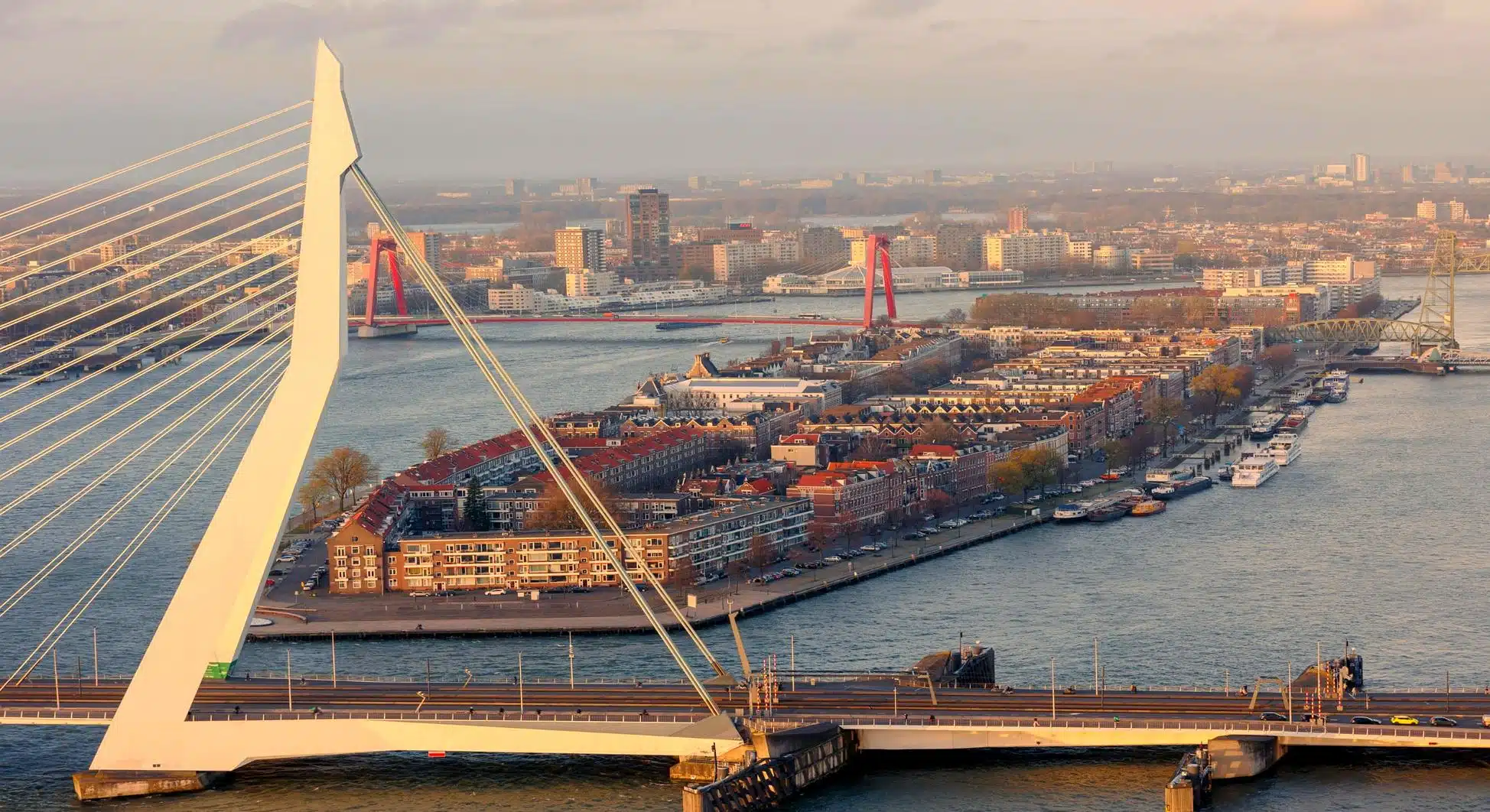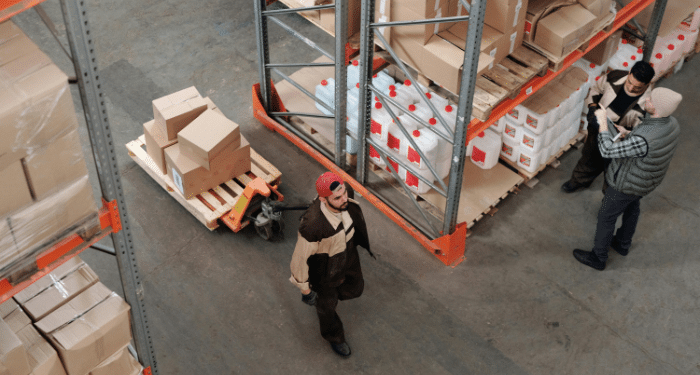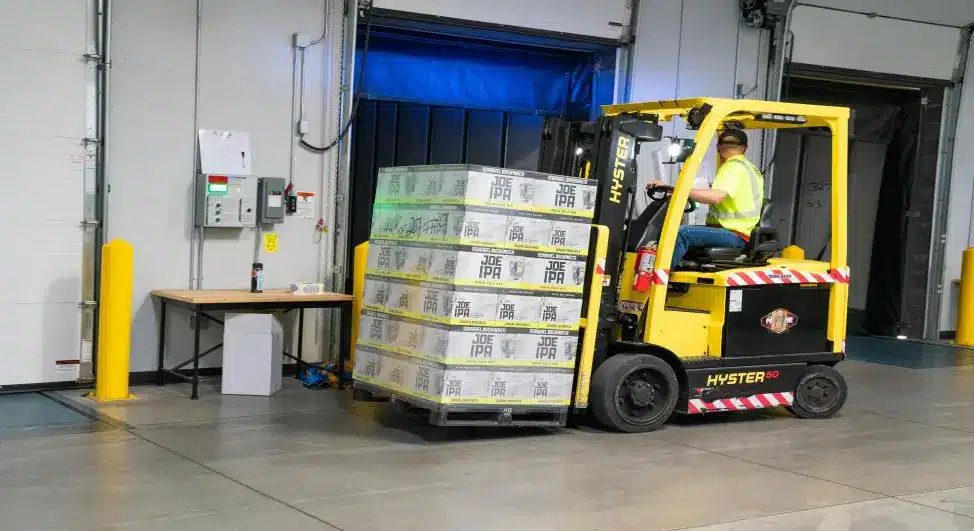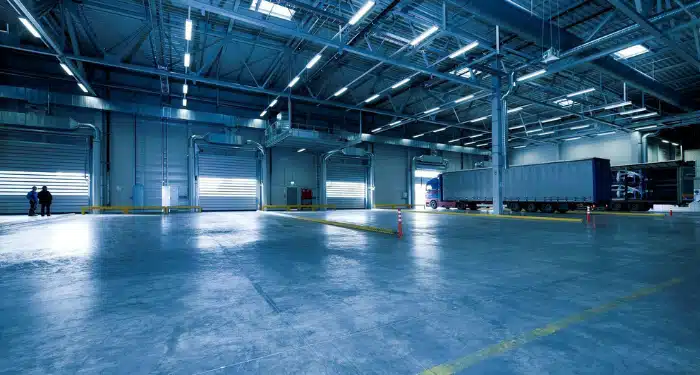A warehouse in Rotterdam isn’t just a storage facility — it’s a gateway to Europe’s most advanced logistics ecosystem. With over 469 million tonnes of goods moving through the Port of Rotterdam annually, the city stands as the continent’s largest and most sophisticated seaport. Its seamless multimodal connections link global ocean trade with inland Europe, making it a prime location for regional distribution, intermodal transshipment, and strategic stockholding.
But navigating the dense warehousing ecosystem in Rotterdam requires more than a simple price comparison. Companies that treat warehouse selection as a logistics procurement decision — rather than a supply chain strategy — risk inefficiencies, higher total landed costs, and poor service levels. In this guide, we break down the six key factors sophisticated businesses consider when selecting a warehouse in Rotterdam, including practical insights, technical requirements, and integration strategies.

Table of Contents
Why Rotterdam Matters in European Supply Chains
Strategically positioned on the North Sea, Rotterdam acts as a primary gateway to the entire European continent, combining global sea freight with world-class inland connections. It’s not just the largest port in Europe — it’s a synchronized logistics ecosystem built for cross-border movement.
Thanks to seamless connections with road and rail, goods stored in a warehouse in Rotterdam can be efficiently distributed to:
- The Iberian Peninsula (Spain & Portugal) within 48–72 hours by FTL/LTL
- France, Italy, and Switzerland in 24–48 hours via consolidated road freight
- Germany, Belgium, and the Netherlands often within 12–24 hours
- Central and Eastern Europe (Poland, Czechia, Hungary) via high-frequency rail corridors
- Scandinavia and the UK through short-sea routes from nearby terminals
Rotterdam is also a major hub in the EU’s TEN-T (Trans-European Transport Network) and offers fast customs clearance via the Portbase digital infrastructure, ensuring synchronized visibility across modes and borders.
What Makes a Great Warehouse Partner in Rotterdam?
When evaluating a warehouse provider in this region, logistics managers should prioritize system compatibility, operational flexibility, and regulatory capabilities, not just pallet pricing.
The ideal warehouse partner should:
- Be embedded within the Port of Rotterdam’s infrastructure (for faster customs and port access)
- Offer scalable physical and digital solutions
- Provide value-added services that support inventory velocity and last-mile distribution
- Demonstrate multinational compliance, including VAT handling, bonded storage, and labeling standards like GS1
Now let’s explore the six technical dimensions of strategic warehouse selection.

Key Factors to Consider When Choosing a Warehouse in Rotterdam
1. Location & Connectivity
The strategic value of a warehouse in Rotterdam lies in its direct access to Europe’s most advanced port infrastructure. Sites near areas like Waalhaven or Maasvlakte offer seamless connections to barge terminals, rail hubs like RSC Rotterdam, and highways such as the A15. This enables efficient inland transport across the Netherlands, Germany, France, Poland, and beyond, making Rotterdam an ideal base for pan-European distribution.
2. Scalability & Flexibility
A modern warehouse in Rotterdam must adapt to fluctuating demand. Look for facilities with modular layouts, seasonal space options, and flexible contracts. This agility ensures resilience during peaks, market shifts, or new product launches, allowing you to scale operations without operational bottlenecks or long-term commitments.
3. Technology & Visibility
Advanced WMS platforms and real-time tracking are essential for visibility and control. A well-equipped warehouse in Rotterdam should offer API integrations, automated alerts, and predictive analytics for efficient inventory and labor management. Tools like RFID scanning and barcode tracking reduce errors and improve fulfillment speed. Standards from GS1 Netherlands support consistent data handling across platforms.
4. Customs & Compliance
Given its role as a key EU entry point, Rotterdam offers strong customs infrastructure. The right warehouse partner should provide bonded storage, fiscal representation, and support for simplified customs procedures such as EIDR. VAT deferment under Article 23 is a major financial advantage for non-Dutch importers.
5. International Expertise
A warehouse in Rotterdam should serve as a multilingual, multi-market hub. Partners experienced with Incoterms, EU labeling laws, and ADR requirements can navigate complex cross-border logistics. Multilingual teams improve coordination with suppliers and clients across Spain, Portugal, Germany, and beyond.
6. Value-Added Services
Leading warehouses go beyond storage. Services like cross-docking, kitting, labeling, and returns handling enhance operational efficiency and reduce delivery times. With the right partner, your warehouse in Rotterdam can also act as a fulfillment center, enabling you to delay product finalization and respond faster to market needs.

Common Mistakes When Choosing a Warehouse Partner
Even experienced professionals fall into these traps:
- Focusing only on price per pallet: It ignores the TCO (Total Cost of Ownership), including handling fees, tech integrations, and error rates.
- Overlooking tech capabilities: Without system compatibility, order processing delays and errors are inevitable.
- No contingency planning: If your warehouse lacks flexibility, you’ll struggle during promotional campaigns, regulatory changes, or disruptions like strikes or weather events.
Why the Right Warehouse in Rotterdam Can Transform Your Supply Chain
Bringing together all of the above — strategic location, scalability, digital infrastructure, customs expertise, international experience, and value-added logistics — the right warehouse in Rotterdam can serve as far more than a storage site. It becomes a dynamic node in your European supply chain, improving speed, visibility, and cost efficiency. While many providers meet parts of this profile, only a few deliver a fully integrated approach. Some, like Portex , offer warehousing services that are specifically built to support international trade across Western and Southern Europe.
Portex : Your Smart Warehousing Partner in Rotterdam
At Portex , our new warehouse in Rotterdam offers bonded storage, technology, and essential services like cross-docking . With strong road access and daily links to Spain and Portugal, and the Benelux, we’re ready to support your European logistics with flexibility and precision.

